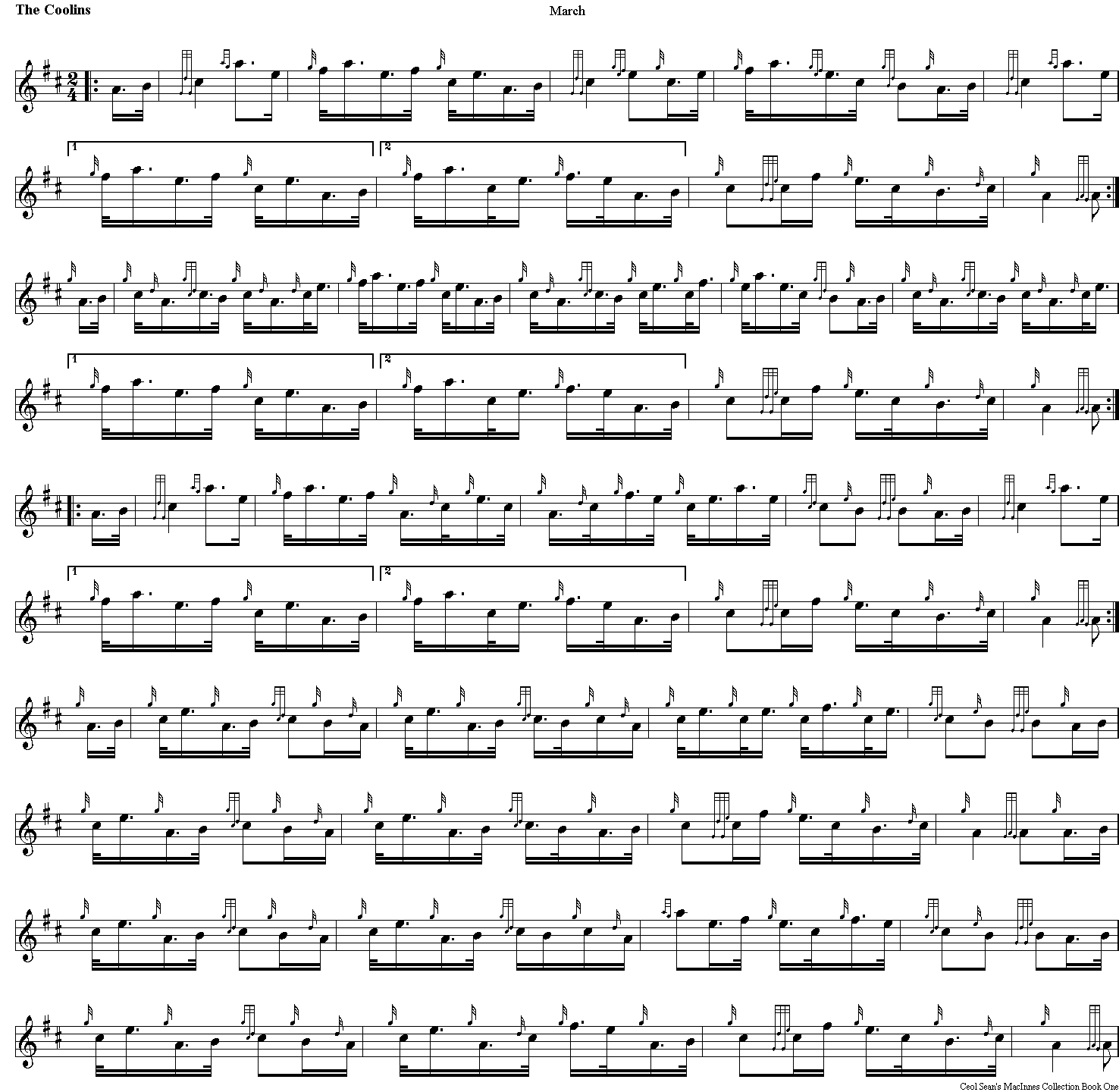 |
|

Best viewed in Music (BMW)
|
A far croonin' is
pullin' me away The Coolins (Cuillin) Scottish Gaelic: An Cuilthionn or An Cuiltheann, is a range of rocky mountains located on the Isle of Skye in Scotland. The true Cuillin is also known as the Black Cuillin to distinguish it from the Red Cuilin (na Beanntan Dearga, known locally as Red Hills) across Glen Sligachan. The Red Cuilin hills are lower and, being less rocky, have fewer scrambles or climbs. The Battle of Coire Na Creiche was fought on the slopes below Bruach na Frýthe in 1601. It was the last Scottish clan battle fought on Skye, in which the Clan MacDonald of Sleat defeated the Clan MacLeod after a bitter feud. The Macleod and MacDonald Clans had been long at feud. Rory M˛r MacLeod (Ruaraidh MacLe˛id) attempted to make peace, offering the hand of his sister, Margaret Macleod, in marriage to Donald Gorm M˛r MacDonald (D˛mhnall Gorm M˛r MacDh˛mhnall). The marriage itself was subject to a contract called a handfast. In a handfast arrangement, a man and woman lived together as man and wife for up to a year and a day. If, during this period, the woman bore a male child to be heir, then marriage would result. If not, then both parties returned to their respective families. After a year and a day, Margaret MacLeod had not borne a child, male or female. Furthermore, at some point during this year, she had lost the sight in one eye. Donald MacDonald, having no further use for Margaret MacLeod, decided to send her back to her brother. He tied her, facing backwards, onto a one-eyed horse, led by a one-eyed servant and followed by a one-eyed mongrel dog, and sent all four back to Dunvegan Castle. Rory MacLeod, incensed by the insult to his sister, and ultimately to himself and his clan, once again declared war on the clan MacDonald. He devastated the Trotternish peninsula in the north of Skye, which prompted MacDonald to attack MacLeod land in Harris. These battles became known as the Wars of the One-Eyed Woman. MacLeod responded with a raid on North Uist, sending 40 men under his cousin Donald Glas MacLeod to seize goods that the locals had put for safety in the Trinity Temple at Carinish. As the raiders ate breakfast in the church, they were surprised by twelve MacDonalds led by Donald MacIain 'ic Sheumais (Donald, son of John, son of James) of Clan Ranald, who led the MacLeods into an ambush. Only two MacLeods survived the Battle of Carinish; Donald MacLeod was among the dead. On his way back to Skye to report his victory, a storm forced Donald MacIain 'ic Sheumais to seek shelter at Rodel in Harris. He was entertained there by Rory MacLeod, even after Rory learned the identity of his guests. However the MacDonalds wisely left secretly during the night; before dawn, MacLeod clansmen set fire to their quarters without the knowledge of their chief. The feud continued to escalate, causing much suffering among the people. MacDonald decided to end it with a decisive battle. When Rory MacLeod went to seek the assistance of Archibald Campbell, 7th Earl of Argyll, MacDonald took the opportunity to launch an all-out invasion of northern Skye. The cattle seized in this attack were driven south to a traditional refuge for raiders, the Coire na Creiche overlooking Glen Brittle below Bruach na Frýthe. Here the MacLeod forces led by Rory's brother Alasdair caught up with the MacDonalds. They joined battle late in the day and continued well into the night. The MacLeods were utterly defeated, with the capture of Alasdair MacLeod and 30 of his kinsmen. The Privy Council now intervened to end the feud. MacDonald was ordered to surrender himself to George Gordon, 1st Marquess of Huntly, and Rory MacLeod was to surrender to the Earl of Argyll. MacDonald agreed to release his prisoners, and the end of the feud was celebrated with three weeks of feasting and festivities at Dunvegan Castle. Aside from a brief flare-up in 1603, that was the end of violence between the two clans. In 2000 the Cuillin were put on sale for ú10 million by the Laird in a scheme of land in exchange for repairs to Dunvegan castle. Following a dispute over ownership, a deal was cut for the property to be gifted in return for repairs to the clan castle.
There is a legend that the Cuillins are haunted by the ghost of an outlaw called MacRaing.
|

